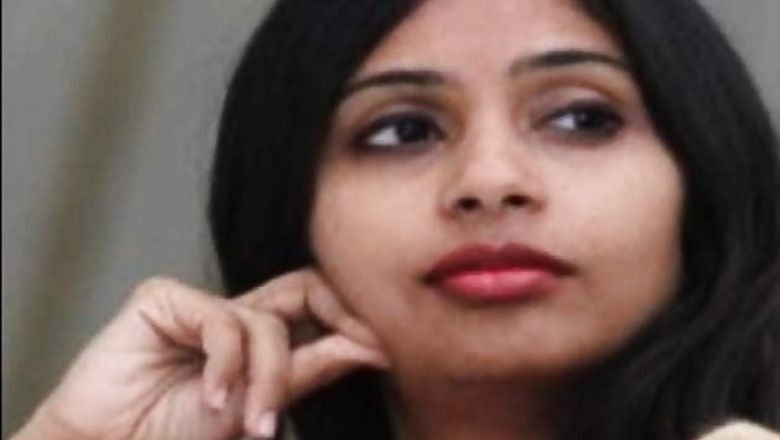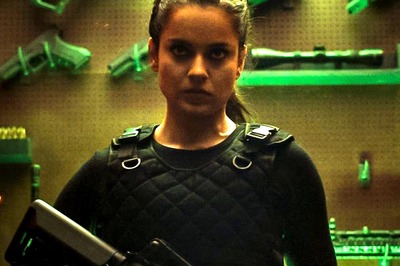
views
Several strands of controversy have come together in the row over the US's stern response to the accusation against Indian diplomat Devyani Khobragade of forging visa papers for her domestic help, and India's angry retaliation on a diplomatic level. From the question of visa fraud to whether the US overstepped the mark, from the role of Preet Bharara, the US Attorney for the Southern District of New York, to the question of why the domestic help's family was whisked away to the US from India, a number of questions remain unanswered.
Add to that the connections that have emerged to l'affaire Adarsh in Mumbai, where Khobragade is believed to have been allotted a flat, the political turmoil and the outrage on social media, and the confusion is further compounded.
Here are some of the crucial questions surrounding this case and some answers.
Q: Did Devyani forge visa papers for Sunita Richard? Did Richard know this?
A: The complaint against Devyani Khobragade gives all details. As per the US law, it is a prima facie case. According the complaint Devyani committed a Visa fraud by forging employment contract papers of Sangeeta Richard. The complaint states, "Khobragade told Witness-l that Witness-l would be questioned about the terms of the First Employment Contract at her interview, and that Witness-l should say that Witness-l would be paid $ 9.75 per hour and would work 40 hours per week. Khobragade also instructed Witness-l to say that Witness-1' s duty hours would be 7 a.m. to 12:30 pm, and 6:30 pm to 8:30 pm Khobragade instructed Witness-l not to say anything about being paid 30,000 rupees per month."
- Devyani is facing two count charges. Complaint itself says that Sangeeta was aware of it. Devyani had told Sangeeta to tell US embassy in New Delhi that she was offered $4500 per month. Both Devyani and Sangeeta agreed that the second contract fixing the salary (Rs 30,000 per month) should not be revealed to the US government. It is a serious crime under the US law.
Count one: (Title 18, United States Code, Sections 1546(a) and 2)
In or about November 2012, in the Southern District of New York and elsewhere, Devyani Khobragade, the defendant, willfully and knowingly did make under oath, and under penalty of perjury under Title 28 , United States Code, Section 1746, and did subscribe as true, a false statement with respect to a material fact in an application, affidavit, and other document required by the immigration laws and regulations prescribed there under, and did present such application, affidavit, and other document which contained such false statement and which failed to contain any reasonable basis in law or fact, and did to wit, Khobragade caused to be submitted to the US Department of State an employment contract that Khobragade knew to contain materially false and fraudulent statements, which contract was submitted in support of a visa application filed by Khobragade for another individual.
Count two: (False Statement) - (Title 18, United States Code, Sections 1001 and 2.)
2. In or about November 2012, Devyani Khobragade, the defendant, in a matter within the jurisdiction of the executive branch of the Government of the United States, willfully and knowingly, did falsify, conceal, and cover up by trick, scheme, and device material facts, and made materially false, fictitious, and fraudulent statements and representations, to wit, Khobragade caused to be submitted to the US Department of State an employment contract that Khobragade knew to contain materially false and fraudulent statements, which contract was submitted in support of a visa application filed by Khobragade for another individual, and Khobragade caused another individual to make statements Khobragade knew to be materially false, fictitious, and fraudulent, to an employee of the United States Embassy in New Delhi, India, in support of the same visa application.
Q: What is the standard operating procedure in the US for such crimes? Did they overdo it with Devyani? What did they actually do? What was real and what was exaggeration?
A: What the US has done is a common practice in such cases. Like Indian laws, US laws also treat all citizens equally. Visa fraud is a part of human trafficking and the US takes it very seriously. India's contention is that Devyani is a diplomat and she can't be treated like others. The US is disputing the diplomatic immunity claim made by India. It is a grey area. Legally speaking there is no term called 'common criminal' both in India and US. Crime is a crime and a criminal is a criminal. If one forgets the fact that Devyani is a diplomat, what she has allegedly done is a big crime. Even the diplomats are expected to strictly follow the laws of host nation. As per the immigration documents signed by Devyani, these matters come under the jurisdiction of US laws. The SOP is more or less the same for all.
Q: What kind of immunity did Devyani have? What kind of immunity does she have now? Does it have retrospective effect?
A: According to the US State department, Devyani had immunity concerning only her consular duties. It does not cover crimes like visa fraud, forgery etc. Since, she has now been moved to India's Permanent Mission at the United Nations inNew York, she is eligible for full diplomatic immunity. The UN soil is a sovereign land of the UN. To get UN diplomatic immunity, Devynani needs the clearance of the US State department. Will she get it? We can't say. If the US wants to defuse the tension, it can accord her retroactive immunity. It has happened in the past.
The best-known example dates back to 1982, when Miami-Dade police officers attempted to search the home of Prince Turki Bin Abdulaziz of Saudi Arabia, who was suspected of holding an Egyptian woman against her will. At the time of the raid, in March 1982, Abdulaziz had no diplomatic credentials. He did have a burly security staff, which scuffled with police and fended off execution of the search warrant on the prince's home. Abdulaziz and his family sued Dade County for violating their civil rights. County officials countersued, claiming they were injured in the scuffle with the prince's staff.
Q: Can the US drop this case as India has demanded?
A: According some legal experts, the US can drop the charges at this stage. Once the charges are formally registered, even the White House can't save her. According to former foreign secretary of India Kanwal Sibal, charges can be dropped only before mid-January. Like in India, judiciary is independent also in the US. Government can't dictate terms to the judiciary.
Q: What is Preet Bharara's role exactly? Why is the US government distancing itself from his actions? Could he have done this without their consent? Is he doing this to fuel his political ambitions?
A: According to Preet Barara his role is limited in the arrest. He says, "As to Ms. Khobragade's arrest by State Department agents, this is a prosecutor's office in charge of prosecution, not the arrest or custody, of the defendant, and therefore those questions may be better referred to other agencies". Barara refuses to take the responsibility for Devyani's alleged inhuman treatment by the US agents. He has out rightly rejected other charges. Preet Barara is a public official who acts as prosecutor for the US government in southern district of New York. According to reports, the US State department gave consent for Devyani's arrest 15 days before she was arrested.
Q: Where is Sunita Richards now? Is she an illegal immigrant whose citizenship might be ratified under a proposed new Immigrants' Law?
A: She is in New York. She is probably with the anti-trafficking agency Safe Horizan. Yes, the US can give citizenship to Sangeeta and her family under the witness protection programme. Since, Sangeeta is facing charges in India, the US can give her asylum.
Q: What is the case against Richards in India?
A: Devyani Khobragade got a restraint order against Sangeeta from Delhi High Court in September. The Delhi HC directed Sangeeta not to institute any inquiry against Devyani in America. Sangeeta is an absconder as per India laws. India had requested the US to send her back home. If she returns, she can even be arrested. Again it is a grey area.
Q: Do some members of Richards's or her husband's family work at the US Embassy or any of its consulates in India?
A: According to some reports, some of her relative work at the US embassy or have worked earlier. Some reports say that Sangeeta's father in law works at the US embassy.
Q: Why did the US government whisk away Richards's husband and son by granting them quick visas?
A: According to US authorities, it was necessary to establish case against Devyani Khobragade. They were facing harassment from Indian government and were under pressure. The US witness and victim protection programme mandates the law enforcing authorities to provide full security to the family members. Because of that they were granted quick Visas.
Q: Who is Uttam Khobragade? What is the connection between him, Adarsh and Devyani?
A: Uttam Khobragade is a retired bureaucrat of Maharashtra cadre. He is Devyani's father. He had appeared before a two member Adarsh inquiry commission to testify that Devyani had got two flats in Mumbai. Despite already having a flat, she got one more at Adarsh. He has denied any wrong doing. The CBI never questioned him or Devyani Khobragade.
Q: Why did this case become a diplomatic issue? Why wasn't it dealt with 'diplomatically' as such matters often are?
A: Because, both sides mishandled it. Normally in these cases, the diplomatic facing allegations or accused in a case will be recalled. India should have done that in the first place. It is called 'diplomatic' handling. By denying Devyani diplomatic immunity, the US has complicated the matter.
Q: What will happen now?
A: Since the US has refused to drop the charges against Devyani, it is unlikely to end soon. If the US goes ahead, she will be in a bigger trouble. UN posting can protect Devyani to some extent. But, the US authorities can still prosecute her. How will she return home? She has to use an airport in the US.



















Comments
0 comment